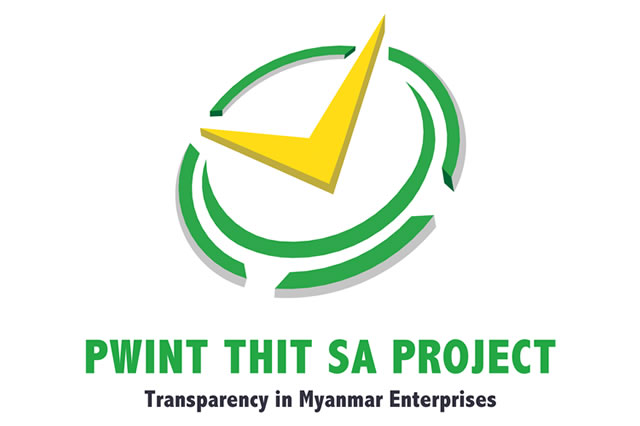Transparency to Rule in post-Sanctions Burma: Business Watchdog

The lifting of US sanctions against Burma, long the Holy Grail of the local business community, will only be a boon to Burmese companies if they learn to embrace a new ethos of transparency.
This is an excerpt of an article published on NVB.no - read the complete article here.
At a press conference on Friday, the Myanmar Centre for Responsible Business (MCRB) urged local companies eager to take advantage of the opportunities that will arise in post-sanctions Burma to disclose more information about their operations. And the best way to start, the group said, was with a website.
“We’d like to see more significant companies have a website and disclosing more information,” said MCRB director Vicky Bowman, noting that a survey by the group found that, even of those with a website, around 45 percent did not have a fully functioning website or published little to no data relating to corporate governance.
In its latest report, the group found that several well-known companies — among them First Myanmar Investment (FMI), Serge Pun and Associates (SPA) and Max Myanmar — scored high for evidence of disclosure of financial data, anti-corruption training, grievance mechanisms and environmental and social impact assessments.
Others, however, did not even have corporate websites where this information could be published.
“There are some familiar names on the list, including Zaykabar, International Group of Entrepreneurs (IGE), and a number of companies involved in the jade trade” that did not meet this minimal requirement, said Bowman.
Even as she urged these companies and others to remedy this problem, however, Bowman was quick to add that a website alone was no guarantee of transparency.
In some cases, she said, websites need to be as carefully scrutinised for what they don’t disclose as for what they do. One example she cited was the website of Asia World, which makes no mention of its palm-oil plantations, even though its involvement in this environmentally destructive business “has been documented in the recent Flora & Fauna International report based on government documents from last year.”
Life after sanctions
Another reason Burmese businesses need to think about setting up websites and sharing more information is that in the post-sanctions era, they will need every competitive edge they can get to differentiate themselves from competitors.
This will be especially important, said Bowman, when it comes time to find foreign partners, who will be keen to know about their financial data, grievance mechanisms, and environmental and social impact assessments.
“Foreign companies we talk to are looking for them to have strong corporate anti-corporate corruption policies, to state clearly what their business is, and to be compliant with the law. And to not have a bad relationship with their stakeholders,” said Bowman.
She added that just because companies are being removed from the sanctions list doesn’t mean that foreign investors will rush to do business with them.
“Companies like Zaykabar and Yuzana are going to get left well behind,” she said. “I don’t see how them coming off the list is going to lead to a rush of multinationals wanting to partner with them unless they significantly lift their game on corporate governance.”
Economist Sean Turnell, an expert on the Burmese economy, agreed that the lifting of sanctions would increase, not decrease, the pressure on companies to improve their ways of doing business.
Read also
- 2022 Pwint Thit Sa / Transparency in Myanmar Enterprises
- uab Tops the 2020 Pwint Thit Sa / Transparency In Myanmar Enterprises Ranking
- 2020 Pwint Thit Sa / Transparency in Myanmar Enterprises
- Corporate Disclosure in Myanmar – Regulatory Requirements and Sustainability Leadership
- Disclosure of Company Information Leads to Better Business Reporting and a Better Investment Climate
 English
English မြန်မာ
မြန်မာ မြန်မာ (unicode)
မြန်မာ (unicode)










